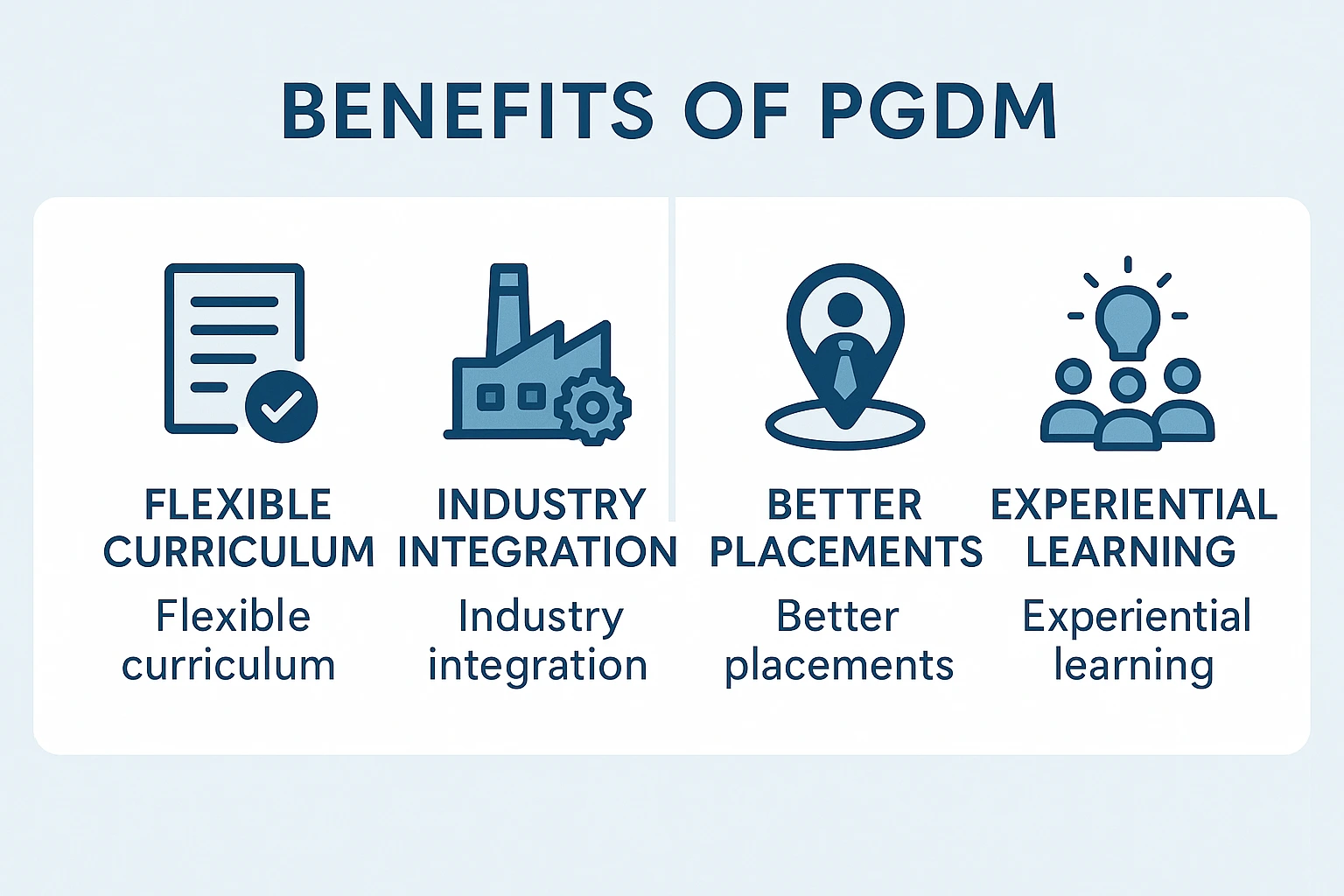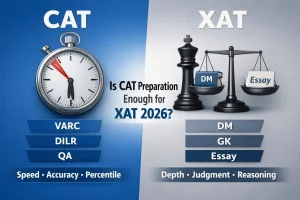Every year, hundreds of graduates ask themselves the same question: Which PGDM courses in India will help my career the most, an MBA or a PGDM in India? It’s hard to choose between the two because they both promise management skills, help with finding a job, and a greater pay cheque. But your choice could affect the next ten years of your career. This article goes over the pros and drawbacks to help you determine if a PGDM, maybe one from the Welingkar Institute of Management, is a better fit for you than a regular MBA. Here is all you need to know about PGDM vs MBA – the better choice!
Understanding the Basics: PGDM vs MBA
The All India Council for Technical Education (AICTE) approves independent schools to offer the PGDM (Post Graduate Diploma in Management). These schools have the liberty to swiftly update their curriculum according to industry requirements and also work directly with businesses because they are not part of the university system. The University Grants Commission (UGC) oversees the awarding of an MBA (Master of Business Administration) degree.
What Are the Real Advantages of PGDM?
Institutions with autonomous status can add modules on new-age subjects like AI, big data analytics, ESG reporting, or fintech as soon as employers ask for them. Blockchain supply-chain labs and sustainability analytics are two new topics that have been added to the course outlines at top schools. These are still not offered in many public university MBAs.
- Integration of Industries
PGDM colleges have actual consulting projects, hackathons, and mentorship days when CEOs give feedback on student ideas. You leave with a portfolio of real business challenges that you solved, not simply grades. Skill Development: Curricula give explicit credits to leadership communication, conflict management, and data storytelling, skills that recruiters claim MBAs sometimes lack.
- Focus on Placement
Because corporations assist in creating the modules, PGDM batches generally get better and faster bids. Private companies look for graduates who can “hit the ground running,” and PGDMs advertise that they can do just that.
But Are There Any Problems?
Diploma, not Degree: Some government and academic companies prefer that an MBA have an official “degree” status, especially when applying for a PhD.
Fee Variation: Some public university MBAs may cost less than private PGDM schools.
Regulatory Recognition Abroad: Most big organizations throughout the world accept top Indian PGDMs; however, some foreign credential evaluators still want university degrees.
While PGDM is considered as equivalent to an MBA, there may be an insignificantly small minority who believe the other way round.
Who Should Get a PGDM?
People who learn by doing: If you like case studies, simulations, and learning by doing, the PGDM’s experiential model will be a good fit for you.
- People Who Want to Work in the Private Sector: Many companies in tech, FMCG, BFSI, and consultancy say they prefer PGDM graduates since they have the most up-to-date tools.
- Future Business Owners: Live industrial initiatives and start-up incubators on PGDM campuses give people a safer place to test out their company ideas.
- People Who Want Flexibility: If a parent who is working full-time, an online PGDM course is perfect since they can make money while learning.
The PGDM course from WeSchool is a 2-year full-time program that places importance on one-on-one calls with a mentor. Students opt for subjects without having to wait years for a new syllabus. The training is completely online, so it works for both busy interns and junior executives. WeSchool is a great choice for the best online PGDM in India because it is well-credited, has low prices, and offers placement webinars for all students.






